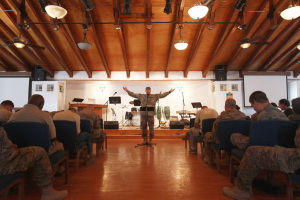Study: 1 in 8 Voter Registrations Inaccurate
A new report by Pew Center on the States estimates that among 24 million voter registrations, about one out of every eight are either no longer valid or are inaccurate.
Of the invalid or inaccurate registrations, 1.8 million belong to deceased individuals and 2.75 million belong to people who are registered to vote in more than one state. The study also found that 51 million U.S. citizens are eligible to vote, but have not registered. This represents 24 percent of the voting eligible population.
"These problems waste taxpayer dollars, undermine voter confidence, and fuel partisan disputes over the integrity of our elections," said David Becker, director of Election Initiatives at the Pew Center on the States, in a Tuesday statement.
The problems arise because election officials are not updating their voter registration systems after registrants have moved to another voting district or died.
Pew found that the United States often uses outdated systems that are not only inaccurate but cost much more. In Canada, which uses modern technologies from the private sector, the cost to process and maintain voter registration is less than 35 cents per voter. By contrast, Oregon spends $4.11 for each voter registration.
Maricopa County, Ariz., was able to save over $1 million over five years by implementing an updated online registration system.
Pew has been working with several states' election officials, academics and technology experts on ways to improve the accuracy of voter registration lists while also reducing the overall costs of maintaining those lists.
Based upon its findings, Pew makes three recommendations to election officials:
- Compare registration lists with other data sources, such as the National Change of Address records.
- Implement proven techniques and security protocols that use additional data sources to eliminate inaccurate records.
- Minimize manual data entry and establish ways for voters to submit information online.
"Proven solutions and technology are already in place in many government offices and the private sector, and states can use them to improve the accuracy, efficiency, and cost-effectiveness of their systems," Becker said. "State leaders from across the country and from both parties are pioneering these solutions. Pew supports their efforts to better serve voters and ensure the integrity of the electoral process."



























